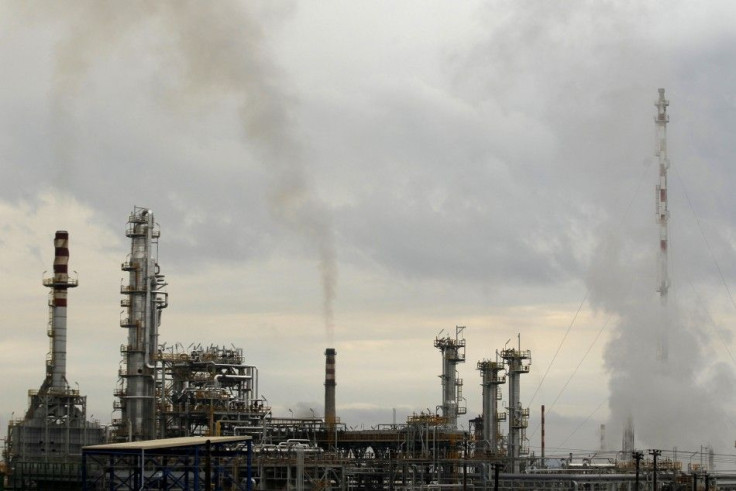Iran Mulls Long-Term, Very Long-Term, Ban on EU Oil Sales

Iran is considering banning all oil exports to the European Union for five to 15 years, a senior Iranian lawmaker was quoted as saying on Sunday, while the country's deputy oil minister said prices would surge should the EU stop importing Iranian crude.
Iranian lawmakers had been expected to debate a bill on Sunday to ban exports of Iranian crude to Europe in a move calculated to hit ailing European economies before an EU-wide ban on any Iranian oil comes into effect in July.
Emad Hosseini, a member of Iran's Energy Commission, told the semiofficial Mehr news agency on Sunday no draft bill had been drawn up, but that lawmakers were considering a preemptive ban on oil exports to the EU, while a member of Iran's National Security and Foreign Policy Commission said any ban would last at least five years.
We will change the threat into an opportunity for Iran and cut Iran's oil supplies to the Europeans for five to 15 years, Mohammad Karim Abedi was quoted as saying by the semiofficial Fars news agency on Sunday. We will not leave enemies' sanctions unanswered, and we will impose other sanctions on them in addition to closing Iran's oil supplies to Europe.
EU imports of Iranian crude rose to about 700,000 barrels per day in the third quarter last year, an increase of more than 7 percent from the second quarter, with some of Europe's most fragile economies among the biggest buyers.
Banning oil imports from the Islamic Republic of Iran, but delaying the implementation of this ban for six months indicates Europe's fear, the vice chairman of the parliament's National Security and Foreign Policy Commission, Hossein Ebrahimi, told Fars.
Escalating tensions between Iran and the Western allies over Tehran's nuclear program, including Iranian threats to close the vital Strait of Hormuz oil-export route in the Persian Gulf, have helped lift Brent crude prices by about $8 a barrel since mid-December.
Benchmark Brent crude prices rose to around $111.50 a barrel on Friday on expectations Iran's parliament could vote to halt exports to the EU next week. Iran's deputy oil minister said on Sunday oil prices could hit $150 a barrel because of the EU ban.
Although a precise prediction cannot be made on oil prices, it seems we will witness a $120 to $150 oil price per barrel in future, Ahmad Qalebani was quoted by the official IRNA news agency as saying.
But analysts say the world is likely to have more oil this summer -- thanks to additional output from Saudi Arabia, Iraq, and Libya that will make up for any lost from Iran under the EU ban -- which could weigh on oil prices.
At the same time, demand for cheap Iranian oil from China, India, and other Asian countries that do not back Western sanctions may mean world oil flows are merely diverted rather than cut, although some of Europe's shakiest economies may have to pay more for alternative supplies.
China and India have made clear they are keen to soak up any spare Iranian oil, even as U.S. Treasury Department measures to choke Tehran's dollar trade make it harder to pay for supplies.
Qalebani said Iran would have no problem selling any oil it does not export to Europe and that India would remain a good customer of Iranian oil despite running up debts of $8 billion due to U.S. efforts to block oil payments to Tehran.
Europe and the United States hope that tougher sanctions aimed at starving Iran of oil revenue can force Tehran to stop a nuclear-development program that Iran says is purely for energy purposes, but which the Western allies suspect includes a weapons program.
It is now unclear when Iranian lawmakers will vote on Iran's response to the Jan. 23 decision by the 27 EU member states to stop all their imports of Iranian oil beginning July 1.
Hosseini said any proposal would first have to be discussed by the Energy Commission and then other key government officials before being submitted to parliament for approval.
(Editing by William Maclean)
© Copyright Thomson Reuters 2024. All rights reserved.






















